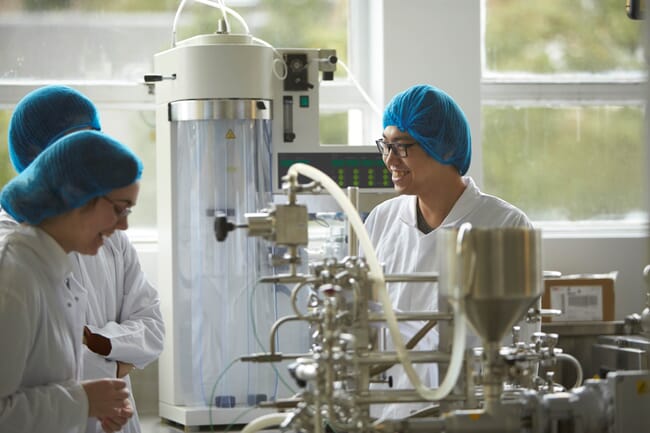
According to the company, the scale-up is a critical step in bringing their flagship ingredient, Thalivra fucoidan, to market, as they can now produce commercial grade fucoidan samples to meet increasing demand across the nutraceutical and wellness sectors.
Thalivra is sourced from brown seaweed for application as a natural solution in gut health and immune support. Backed by emerging scientific evidence, the company says that it offers antioxidant, antimicrobial, enzymatic inhibition, and prebiotic functions – making it ideal for integration into functional foods, nutraceuticals and other health formulations.
“We’re seeing solid demand for research-backed fucoidans as an ingredient in nutraceuticals and wellness,” said Jay Dignan, CEO of BioMara, in a press release.
“Yet, supply remains limited especially in UK and Europe. Our successful scale-up at CPI demonstrates that BioMara can fill this gap with a robust process for high-quality product. Partners can now rely on us as a secure, UK-based fucoidan supplier,” he added.
The process running a full equipment stack scaled from 500 l pilot batches to 1,000 l without compromising product purity or performance. According to BioMara, Thalivra achieved high-yields and high-purity without the use of harsh chemicals, positioning their proprietary process as one of the most efficient, effective and clean commercial seaweed operations in the Western world.
They add that the milestone positions Thalivra for market entry and reduces risk in future production roll-out with contract manufacturing organisation (CMO) partners.
As a parallel track to scale-up, BioMara is investing in scientific validation through Project BioSWELL (Biotechnological Innovations for Optimised Seaweed Wellness and Economic Levelling-up) in collaboration with Abertay University, with support from Innovate UK Launchpads. This three-phase study will substantiate Thalivra’s bioactivity and bioavailability, a key requirement to boost customer confidence in this solution.
Stage 1
Simulated digestion using the INFOGEST Protocol: Applying an internationally recognised in vitro digestion model to understand how the target compound behaves through the human digestive process.
Stage 2
Gut absorption modelling assessing bioavailability using Caco-2 Cell Assay: Evaluating the extent to which Thalivra can be absorbed across the intestinal barrier, a key step in demonstrating efficacy.
Stage 3
Ex vivo human microbiome response: Testing the effect of digested and undigested Thalivra on human gut microbiota, focusing on the production of beneficial short-chain fatty acids, which are well-established markers for gut health modulation.




